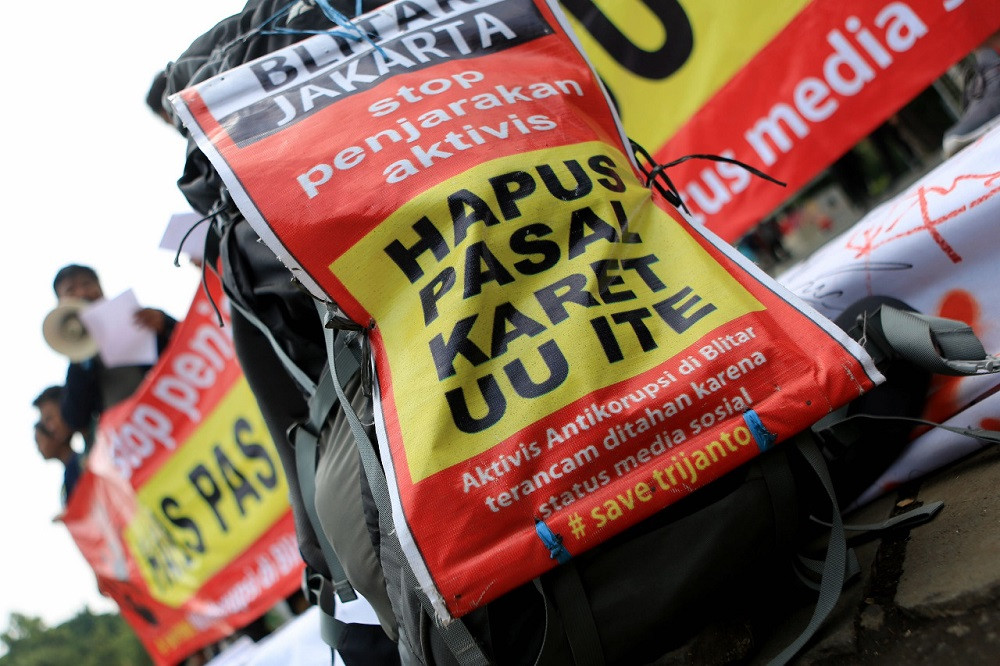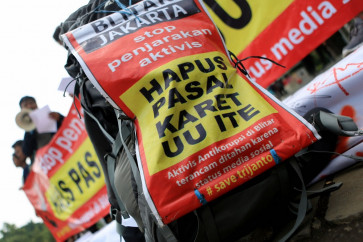Popular Reads
Top Results
Can't find what you're looking for?
View all search resultsPopular Reads
Top Results
Can't find what you're looking for?
View all search resultsIndonesia inches closer to 'digital authoritarianism' during pandemic
Attacks against government critics and the criminalization of free expression reached new highs last year, two recent reports suggest.
Change text size
Gift Premium Articles
to Anyone
I
ndonesia moved closer to digital authoritarianism in 2020 as attacks against government critics and the criminalization of free expression reached new highs, two recent reports suggest.
The two reports, produced separately by the Southeast Asia Freedom of Expression Network (SAFEnet) and Amnesty International Indonesia but released at the same event on Wednesday, found that the COVID-19 pandemic had allowed authorities to constrict civic space in the country.
SAFEnet executive director Damar Juniarto said that throughout last year, law enforcement officers had taken "excessive measures" to limit the freedom of expression through the Electronic Information and Transactions (ITE) Law and by devising new regulations.
On April 4, 2020, for example, the National Police headquarters issued a circular instructing officers to patrol the internet and take action against anyone who spread hoaxes about the coronavirus or insulted the President or his administration.
The police issued a similar instruction in October 2020 following nationwide protests against the passage of the controversial Job Creation Law. Former National Police chief Idham Azis ordered authorities to carry out cyber patrols, to propagate negative sentiment about the jobs law strikes and to “create a counter-narrative against issues that discredit the government”.
Damar said both policies had led to an increase in infringements upon the freedom of speech, with the National Police investigating some 4,800 cases under the ITE Law last year, the most since 2017.
"Most of the cases investigated were related to defamation, insults to the President or his administration and the spreading of hoaxes or false news, the majority of which were reported to the police by public officials," he said.


















